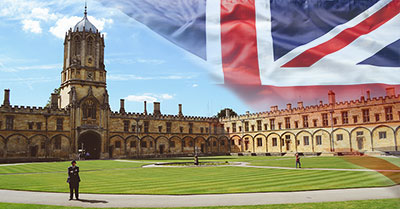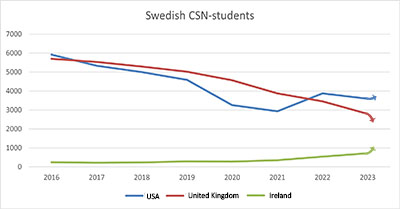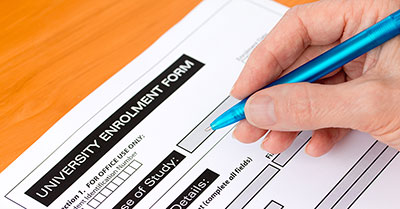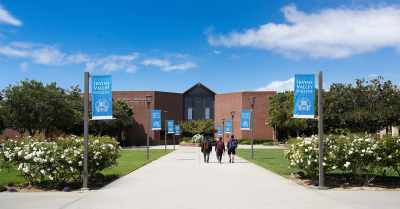Study in France
Do you want to study in France? Campus France has helped us to write this guide with all the information you need about studying in France.
A lot of options
Within the French higher education system there are world class institutions, a wide range of education programs and various programs taught in French and English.
Many people dream of living and studying in Paris. But don’t forget to look at other options. Smaller cities such as Grenoble, Montpellier, Toulouse and Rennes offer high quality education and a lively student scene! The living costs are lower in the smaller cities and it is easier to find accommodation.
Read the student magazine l'Etudiant's ranking of the best student towns in France.
Programs
Study abroad semesters are uncommon in France so most international students attend degree programs or language courses.
The academic year is divided into two semesters. It starts in September and lasts until June. Degree programs in France are divided between:
- Undergraduate: Bachelor's degree /License (3 years)
- Postgraduate: Master (2 years)
Admission Requirements - First Level
To be accepted to a French university you need to have graduated from High School. You apply through the Parcoursup website to the first year of a 3-year Licence (Bachelor’s) degree at public French universities and for most other basic level programs (eg BTS, DUT).
The Parcoursup website has been developed to simplify access to higher education in France. It replaces the admission process Post-bac (APB).
Parcoursup is aimed at students who attend the last year of high school and plan to continue their studies at a college or university in France.
Concours
Some specialized schools, such as Grandes écoles, have their own application and selection system known as concours. A concours often includes written and oral tests that assess your motivation and your knowledge. In some cases, a special selection process is organized for international students.
Check for the particular program you are interested in via the university website or by contacting the admissions team (you will find contact information on the schools’ website under the "Inscriptions" or "Admissions" section) or the international office at the college or university that you are applying for.
Appllying directly to year 2 or 3
If you already have studied at university level you might want to apply to the second or third year on License (L2, L3). Then you don’t use Parcoursup, instead you should contact the international office at the university where you want to study. Read more in our article about how to apply to universities abroad.
Application - Masters
For programs on Master level, you apply and register directly with the institution where you want to study. See the schools website for admission requirements. The Trouver Mon Master website will help you find a program that suits you.
Knowledge of the French language
If you will study in French you will need to enclose a certificate of your knowledge in French when you apply, often the results from the language tests DELF or DALF. The exact requirements varies between different universities and programs so make sure to check with the university in advance.
You can improve your French and take a preparatory language course for DELF / DALF in our French language schools.
What does it cost to study at French universities?
Registration via Parcoursup is free. Public universities only charge an enrollment fee that is quite low.
The enrollment fee for studying a Licence at a public university was EUR 184 per year in 2017-2018. However, at private universities, the tuition fee is usually significantly higher. See the university’s website for more information and to ask for possible scholarships!
Enrollment fees for 2017/2018:
- License (bachelor): € 184 (for one year)
- Master: € 256 (for one year)
- Engineering program: € 610 (for one year at Ecole d'ingenieur)
- Doctorate: € 391 (for one year)
Read more about enrollment fees at French universities.
University courses in English in France
You can study International Relations and Political Science in English on undergraduate and master level in English at ESPOL - The European School of Political and Social Sciences in Lille.
You can also take other programs in English at universities in France, especially at the Master level. Use Campus France search engine to find programs where the language of instruction is in English.
Language courses in France
If you really want to expericene life in France you should start by learning the French language. There is no better way than to study at a French language school.
Language courses are very flexible. There are courses on all levels and you can start almost every week and decide on your own how many weeks you want to study.
Scholarships for studies in France
The tuition/enrolment fees at public universities are very low, so scholarships are not as common as in the U.S. However, private universities with higher tuition fees often have some scholarships. Look at the school's website and contact them for more information about the scholarships they provide. You will find more tips in our guide scholarships for studying abroad.
The IT-school Ironhack in Paris offers a 1000 Euro scholarship for all women who attend their 9 week web development bootcamp. You are also welcome to apply for DreamStudies’ study abroad scholarship if you want to study in France.
Visa to study in France
As a citizen of the EU, you do not need a visa to study in France. If you are not from Europe you will need to apply for the Student Schengen Visa.
Can I work while studying in France?
Yes if you are an EU-citizen you can work as much as you like while studying in France. Good knowledge of the French language will make it much easier for you to get a job.
If you are not an EU-citizen you will need to obtain a work permit to work in France.
Insurance for students in France
It is important to have good insurance when studying abroad. We recommend Dr Walter’s Pro Trip World Insurance for studying in France.

























